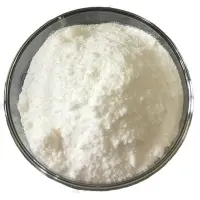-
Categories
-
Pharmaceutical Intermediates
-
Active Pharmaceutical Ingredients
-
Food Additives
- Industrial Coatings
- Agrochemicals
- Dyes and Pigments
- Surfactant
- Flavors and Fragrances
- Chemical Reagents
- Catalyst and Auxiliary
- Natural Products
- Inorganic Chemistry
-
Organic Chemistry
-
Biochemical Engineering
- Analytical Chemistry
-
Cosmetic Ingredient
- Water Treatment Chemical
-
Pharmaceutical Intermediates
Promotion
ECHEMI Mall
Wholesale
Weekly Price
Exhibition
News
-
Trade Service
Introduction: Glioblastoma is the most malignant glioma in astrocyte tumors, the growth rate is extremely fast, 70% to 80% of patients in 3 to 6 months, the course of more than 1 year only 10%, after active treatment, it is also very likely to relapse and rapid progress between six months and a yearTherefore, curbing the recurrence of glioblastoma is an important problem to reduce its mortalityA new study by scientists at thethe University of Texas Southwest Center suggests that the combination of immunotherapy factors encourages immune cells to devour cancer cells and alert other cells to attack themThe combination of the drug can put mice with a deadly form of brain cancer, also known as glioblastoma, in a state of long-term reliefThe findings, published online March 20, 2020 in Nature Communications, could lead to new treatments that could significantly improve survival rates for patients with gliomas, whose average survival can only be extended by 15 months after diagnosis, even with the most advanced treatmentavailableThe immune system has two branches: innate immunity, an older evolutionary system that continuously monitors physical conditions and usually "eats" foreign invaders, such as bacteria or viruses, through a process called macrophages; The two branches overlap to some extent: for example, innate immunisation is trained to acquire immune, focusing on attacking potential pathogens in acquired immunityin recent years, researchers have had considerable success in using the immune system to attack certain cancers, inventing multiple drugs that can greatly prolong a patient's survivalHowever, Wen Jiang, a Ph.Dand associate professor of radiation oncology at the University of Texas Southwest Center, who led the study, said the effort focused primarily on acquired immunitysome of the drugs being developed are designed to enhance the ability of the innate immune system to attack cancer by blocking CD47, a protein that many cancer cells have on the surface and is functioning to send a "don't eat me" signalGlioblastoma (GBM) is the most common adult primary central nervous system deterioration tumor, is also a frequent clinical treatment of a cancer, usually on the surface of its tumor shows a large number of elevated CD47, and the higher THE CD47 indicates a poor prognosisIn clinical testing, the drugs also have mixed results, Jiang said, and while the drug shows potential to treat blood cancers, such as leukemia, treatment for solid tumors is disappointingto improve survival in GBM patients, Jiang and his colleagues have sought a variety of ways to push innate immune cells to devour GBM cells, which not only can directly destroy cells, but also help the acquired immune system launch a sustained attackresearchers tested cd47 monoclonal antibodies (proteins that adhere to and conceal CD47) for the first time, using congenital immune cells (macrophages) to inhibit the growth of GBM cancer cells in a dishAlthough the CD47 factor does stimulate macrophages to devour cancer cells, Jiang says, "the effect is not obvious, there is nothing to brag about." next, Jiang and his colleagues used a drug called TMZ to test the "eat me" signal for cancer cells TMZ, a 10-year-old drug that is the backbone of most GBM treatments, stimulates the stress response of cancer cells and makes it easier for the immune system to remove cancer cells Jiang said that although the drug also increased the role of cancer cells, but the effect is not large Jiang and his colleagues later speculated that because the two drugs had very different mechanisms, they might have more common reactions It is clear that when these two factors are combined, their binding appears to have synergies, promoting macrophages to devour more GBM cells than a single drug Further tests have shown that once macrophages devour cancer cells, macrophages use the compound components of these cancer cells to stimulate the immune system's T-cells, which are the main acquired immune cells that attack cancer cells and kill more GBM cells when researchers tested the combination therapy in a GBM mouse model, it successfully reduced the tumor and extended life Over time, however, tumor cells develop a different way to escape the immune system by increasing the yield of a protein called PD-L1, which protects tumor cells from T-cells To stop the change, the researchers added an antibody to the protein, called anti-PD-1 This three-part program - anti-CD47 antibodies, anti-TMZ, and anti-PD-1 antibodies - greatly extends the patient's survival About 55 percent of these animals did not die during the study, a condition similar to long-term remission in patients, Jiang added, adding that he and his colleagues hope to be able to test the method in humans in clinical trials as soon as possible "If a new treatment extends a patient's life by one to two months, it will be a sensational drug, " Mr Jiang said "Here, we're talking about a significant proportion of patients who may be cured Connecting the innate immune system with the acquired immune system may be a big step forward for GBM "







